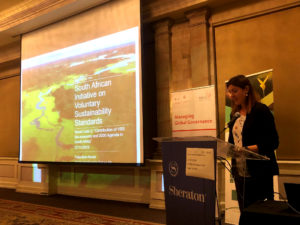
In the wake of the 2021 UN climate change conference in Glasgow (COP 26), things looked quite promising for international climate cooperation. The summit had yielded a flurry of new commitments and initiatives. Importantly, an ambitious plurilateral partnership with South Africa, a major emerging economy, was heralded as a new approach in results-oriented climate diplomacy. Germany, France, the United Kingdom, the United States, and the European Union pledged to support South Africa in its just transition, i.e. in weaning itself off of its coal-fuelled energy production in a manner that affords social protection to those affected by structural change in the economy. More Just Energy Transition Partnerships (JETPs) like the one with South Africa could follow in the future and, their proponents hope, accelerate implementation of the Paris Agreement and reinvigorate global climate action. The G7, under German presidency, has certainly catered to that notion.
Less talk, more action?
However, not all is rosy in international climate cooperation, far from it. Pledges and policies for decarbonisation are nowhere near sufficient to meet the goals of the Paris Agreement. Longstanding issues are causing growing frustration among developing countries. In particular, financial support from industrialised countries is neither as high as promised, nor does it meet the needs. Discussions about climate-related loss and damage and commensurate support for climate-vulnerable poor countries are proving a veritable challenge, as the intersessional climate negotiations in June have shown. To make matters worse, geopolitical concerns about energy security, strained public budgets grappling with the impacts of the COVID-19 pandemic, and a surge in inflation are shifting short-term priorities in many developed countries. These factors have severely hampered the momentum and relative optimism for ambitious climate action in the run up to COP 27, which is set to convene in Sharm El Sheikh, Egypt, from 6 to 18 November 2022. Can the envisioned ‘JETPs’ be a much-needed shot in the arm in this context?
UN climate negotiations are slow and cumbersome affairs. Bi- and minilateral Just Energy Transition Partnerships, then, do seem like a promising and politically relatively inexpensive option to get things moving while cushioning transition pains – without requiring the consensus of 198 parties to the UN Framework Convention on Climate Change (UNFCCC). Realising this potential, however, may prove difficult if the JETPs are not seen to deliver. The perceived hypocrisy of the West’s energy policy has already put a strain on international climate cooperation. At the same time, the momentum brought on by the Paris Agreement is getting lost and trust in the multilateral process among the most affected – least developed countries and small-island states – is low.
Credibility requires coherence
With its reliance on gas and even resorting to coal in the current energy crisis, Germany, in particular, sees its credibility under scrutiny. Fossil fuel subsidies as a means to combat price surges for gas and oil do not go unnoticed abroad. Germany risks being accused of double standards and backsliding if it does not at least communicate its long-term intentions more effectively. Its pandering towards Senegal for a gas-fuelled JETP does not bode well in this regard. Moreover, emerging economies that are less dependent on coal than, say, Indonesia or South Africa will wonder what they can get instead of a JETP. The impression that exploiting coal and gas resources is the ticket to financially strong partnership agreements may alienate lower and middle-income countries that also seek support in dealing with climate change. But the engagement of all of these countries is required to bend the curve of global greenhouse gas emissions.
With regard to implementation, and despite unprecedented efforts to establish a common strategy to climate policy as a united Team Germany, tensions between the mandates and priorities of various ministries with regard to JETPs remain. Moreover, just transitions are difficult to realise even if the aforementioned challenges can be overcome. Transitions are never without friction. Circumstances on the ground – such as the structure of economy or the technical and legal particularities of any given energy system – invariably pose significant challenges. Additionally, they vary considerably across prospective partner countries. There can, therefore, be no common blueprint for expedient JETPs. Country ownership is key to be able to appropriately take national and local contexts into account.
What’s next?
These are challenging times for multilateral climate cooperation. Adding and owing to the withering trust and changing priorities described above, there has been a shift away from multilateral climate negotiations towards alternative forms of cooperation. Some even wonder if the large annual climate summits are still fit for purpose. A proliferation of JETPs could, despite good intentions, end up contributing to this shifting of the centre of gravity away from multilateral fora. This could prove detrimental in view of a global challenge that needs all hands on deck. To avoid further erosion of multilateral climate governance, any meaningful partnerships with individual countries should go hand in hand with a systematic strengthening of the climate summits’ governance functions to hone their relevance for implementation across countries and pertinent sectors, e.g. by shifting from negotiation only to tangible guidance for action.
The envisaged JETPs will best serve this purpose if they can clearly demonstrate that engagement and resolve, underpinned by commensurate resources, will actually yield ambitious results for global climate governance and national development. The currently ongoing New York Climate Week, deliberately coinciding with the UN General Assembly, and the UNFCCC’s COP 27 in November can serve as crucial stepping stones to that end. To be able to rise to the occasion, prospective sponsors like Germany and the EU will need to coherently realign their domestic climate policy with credible international commitments.

